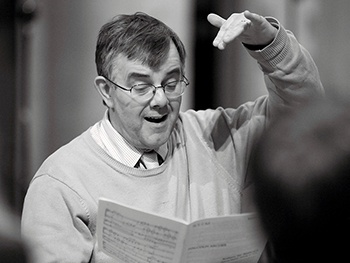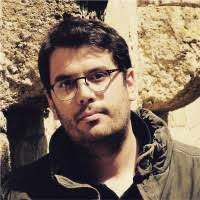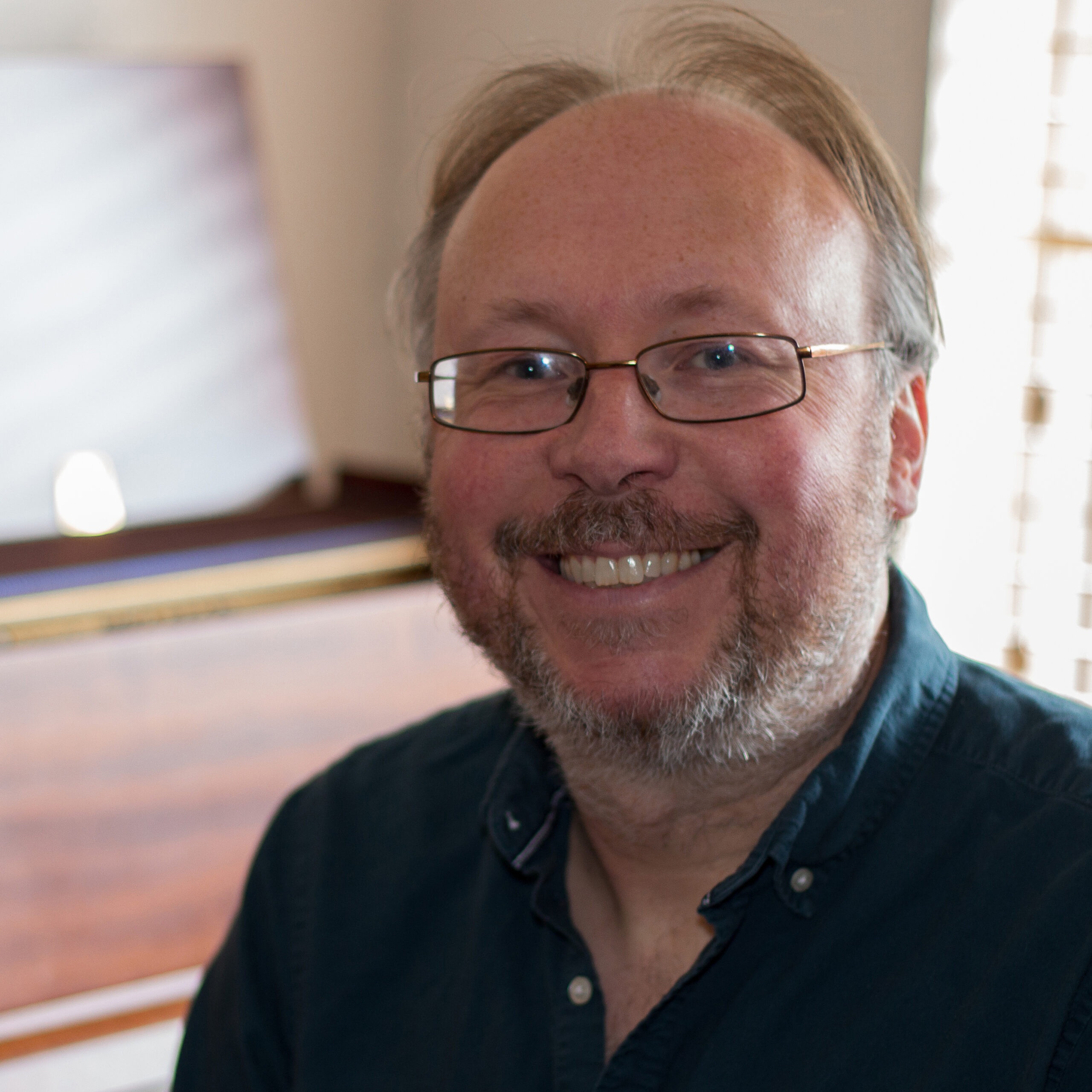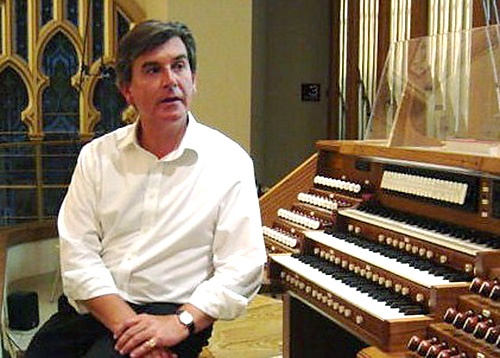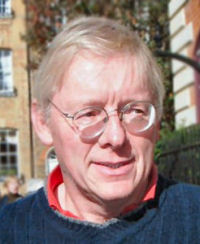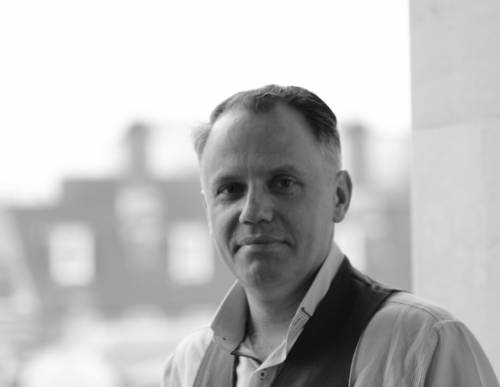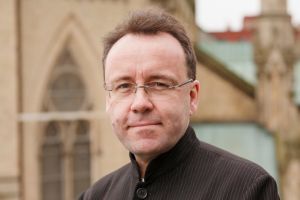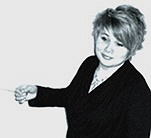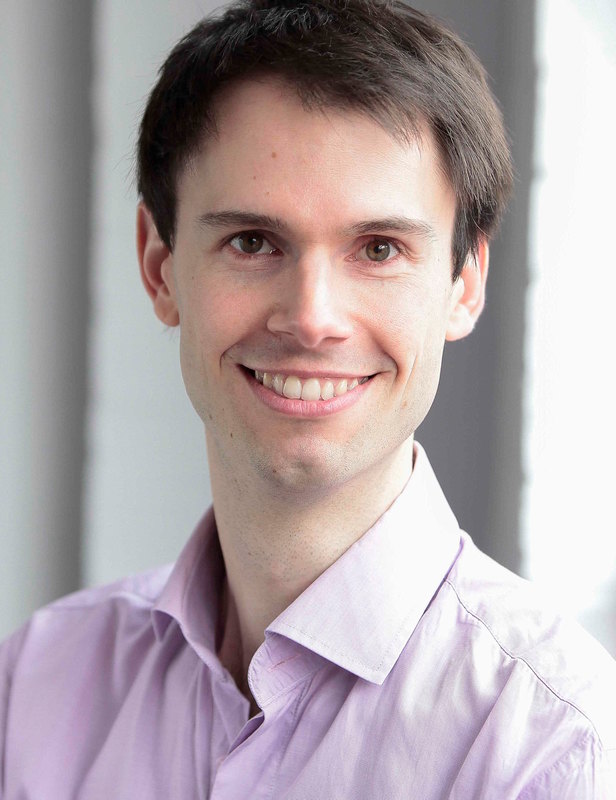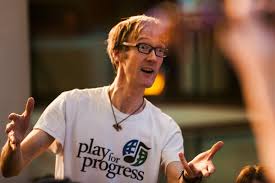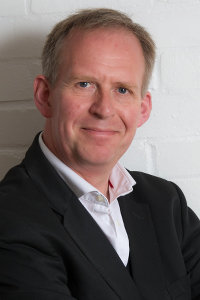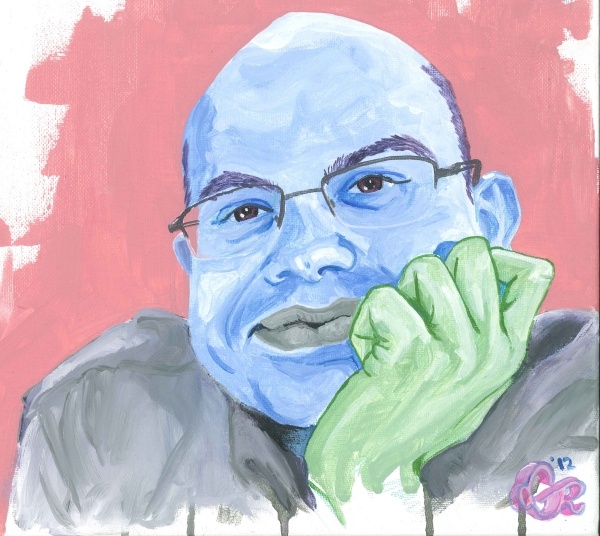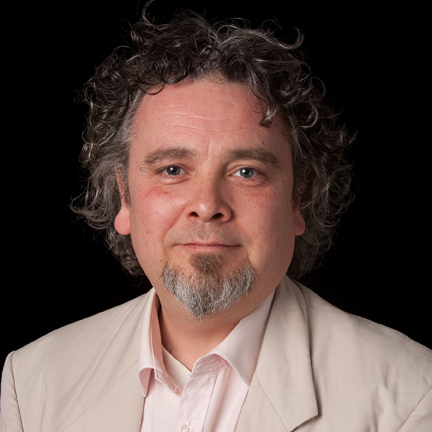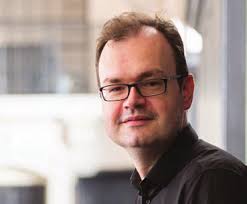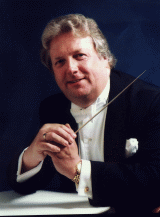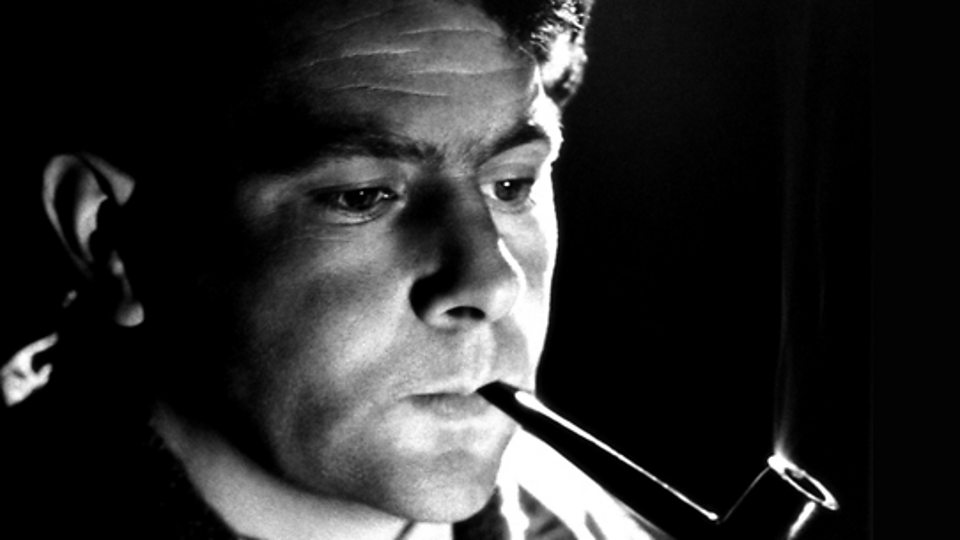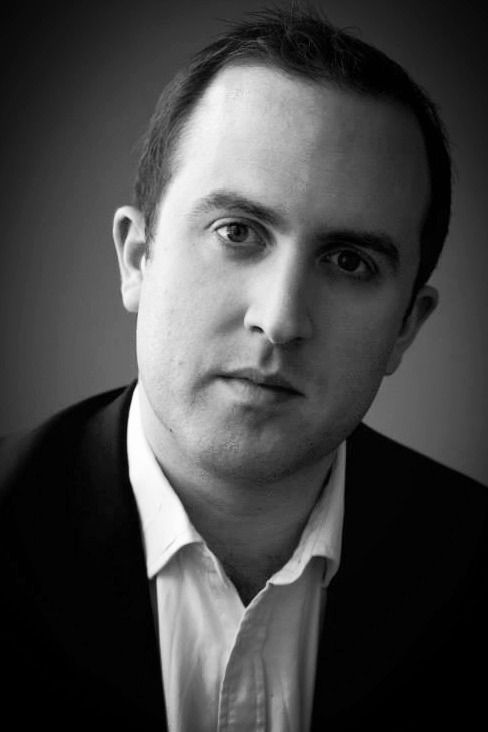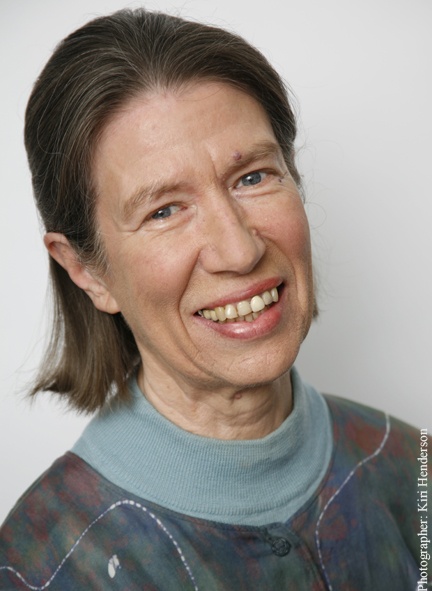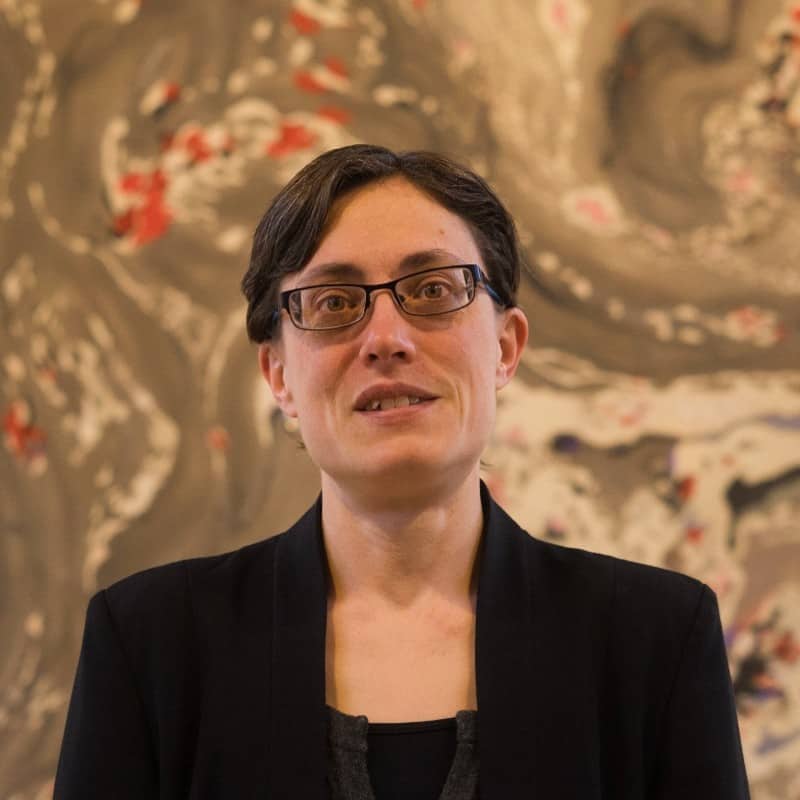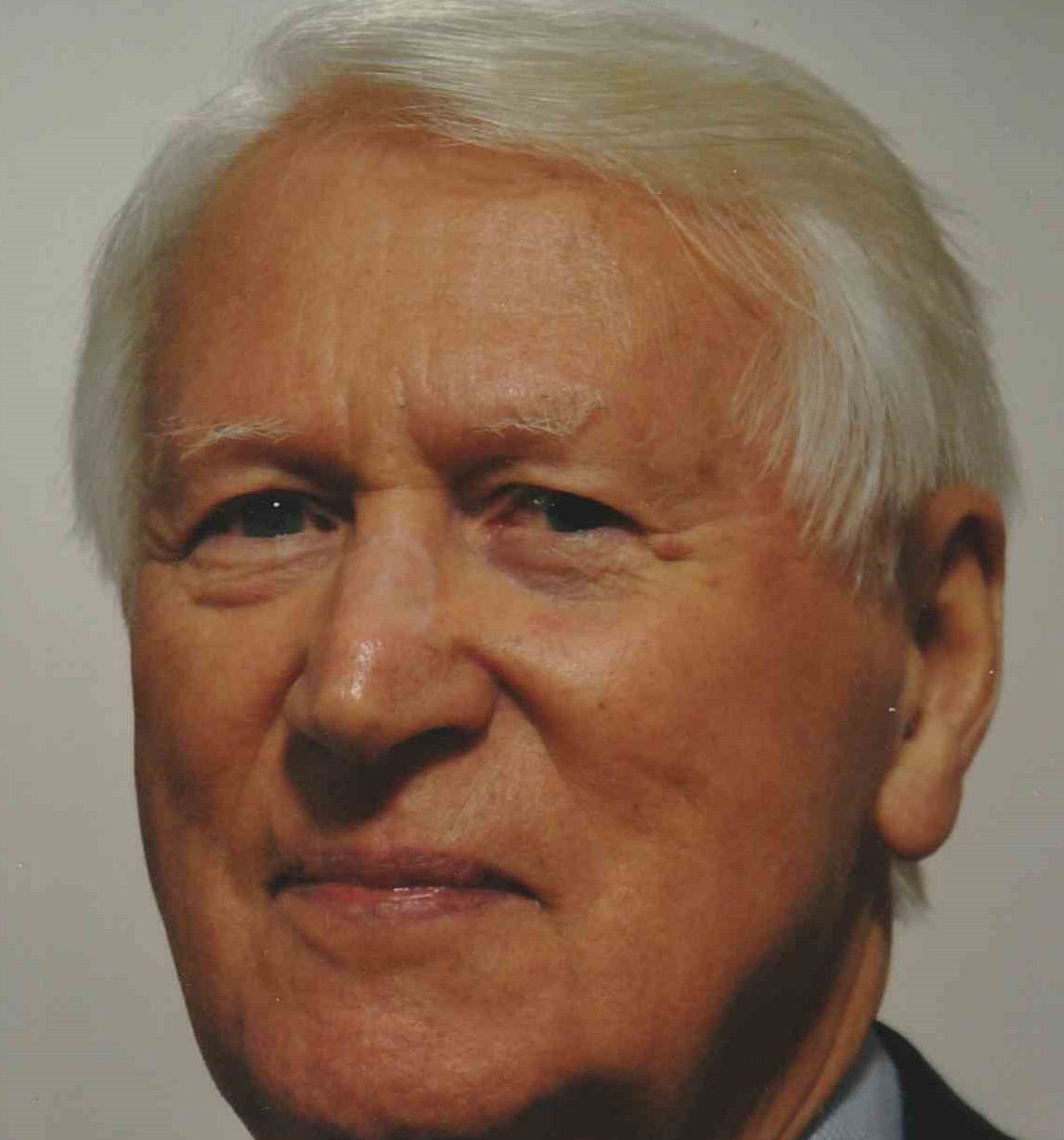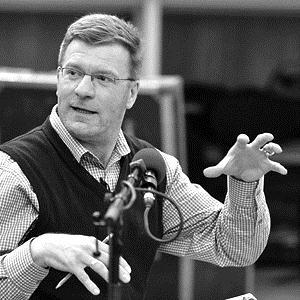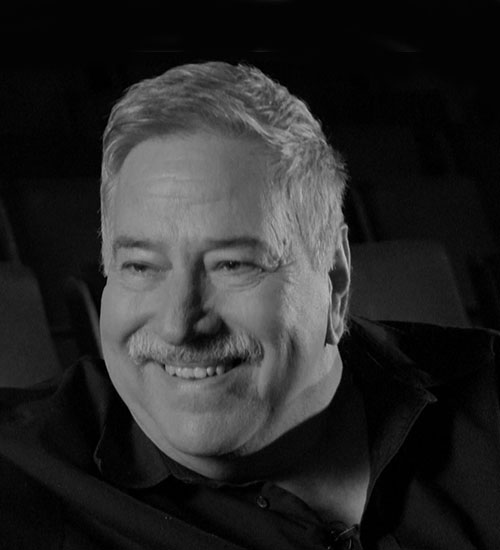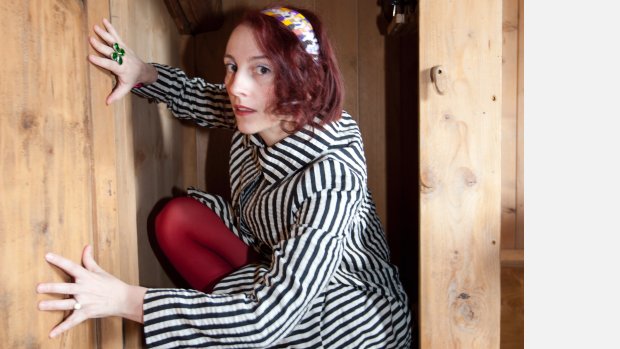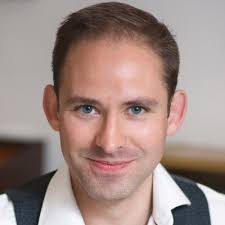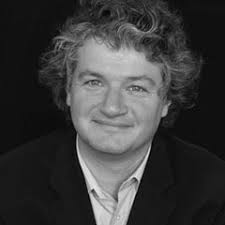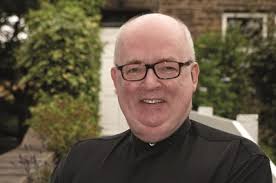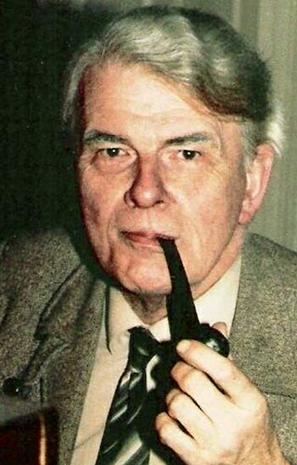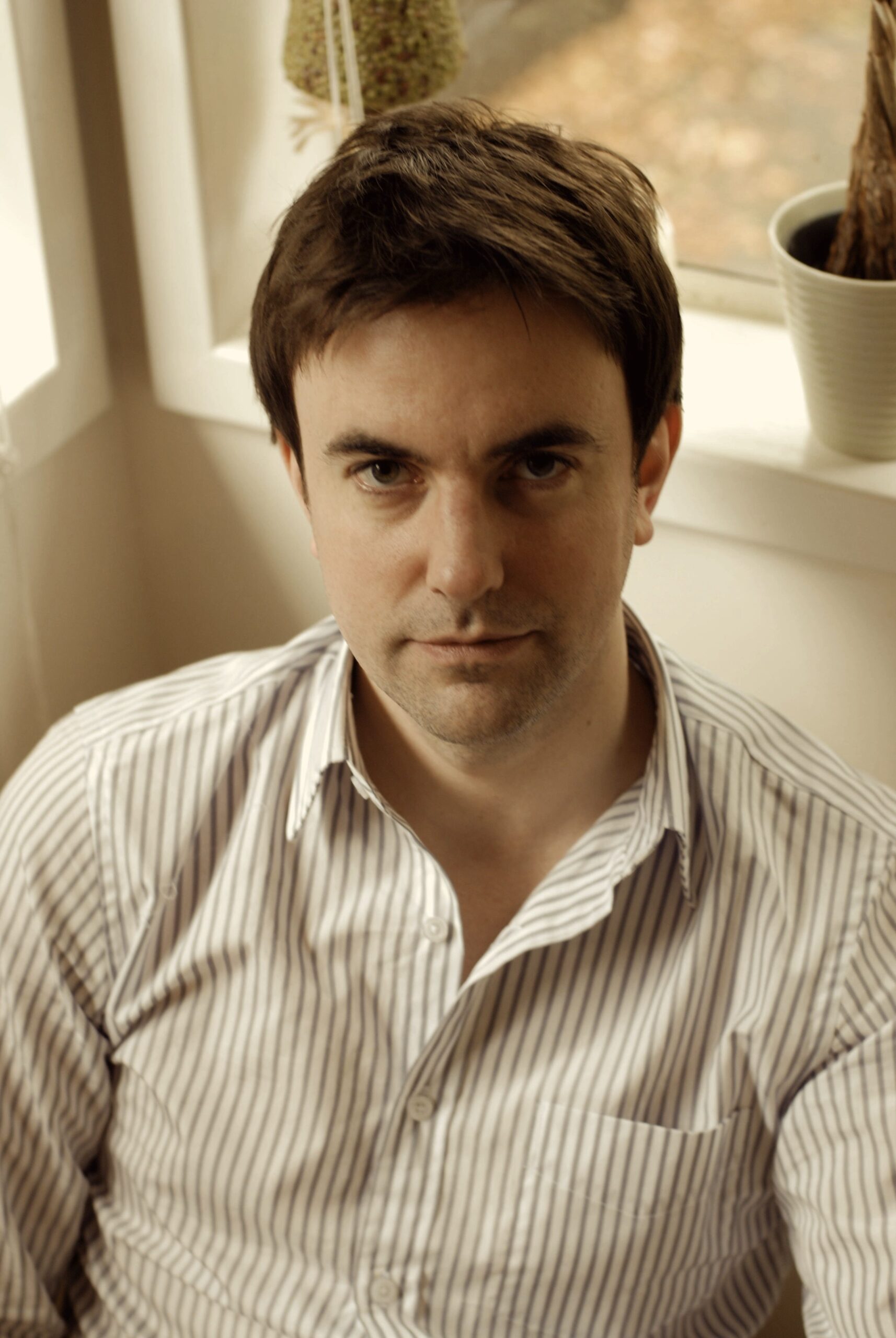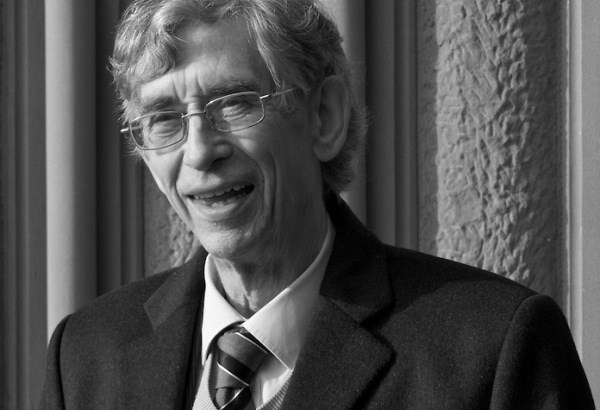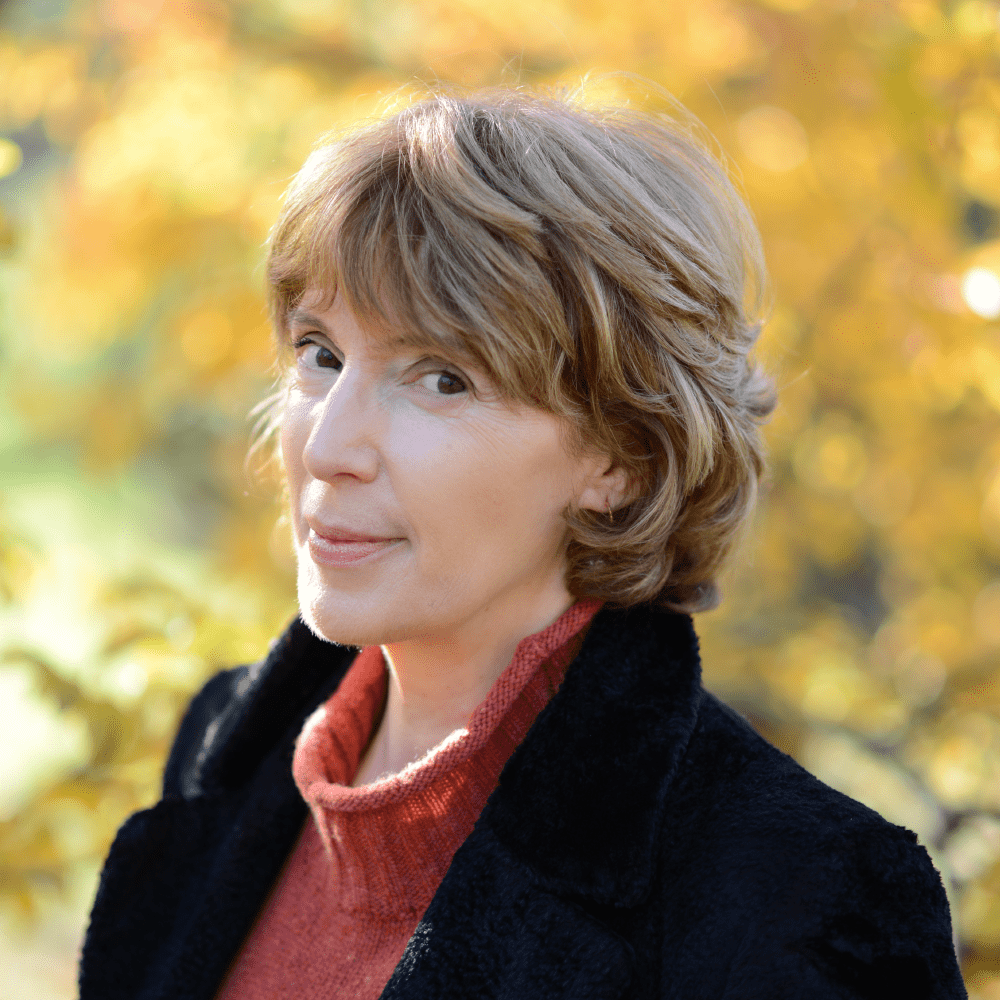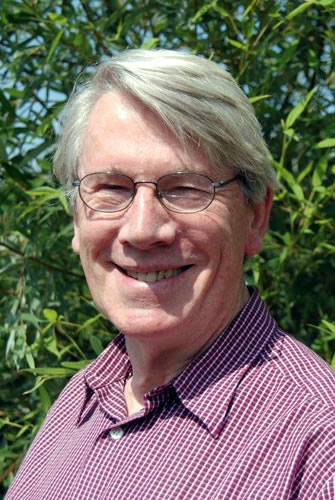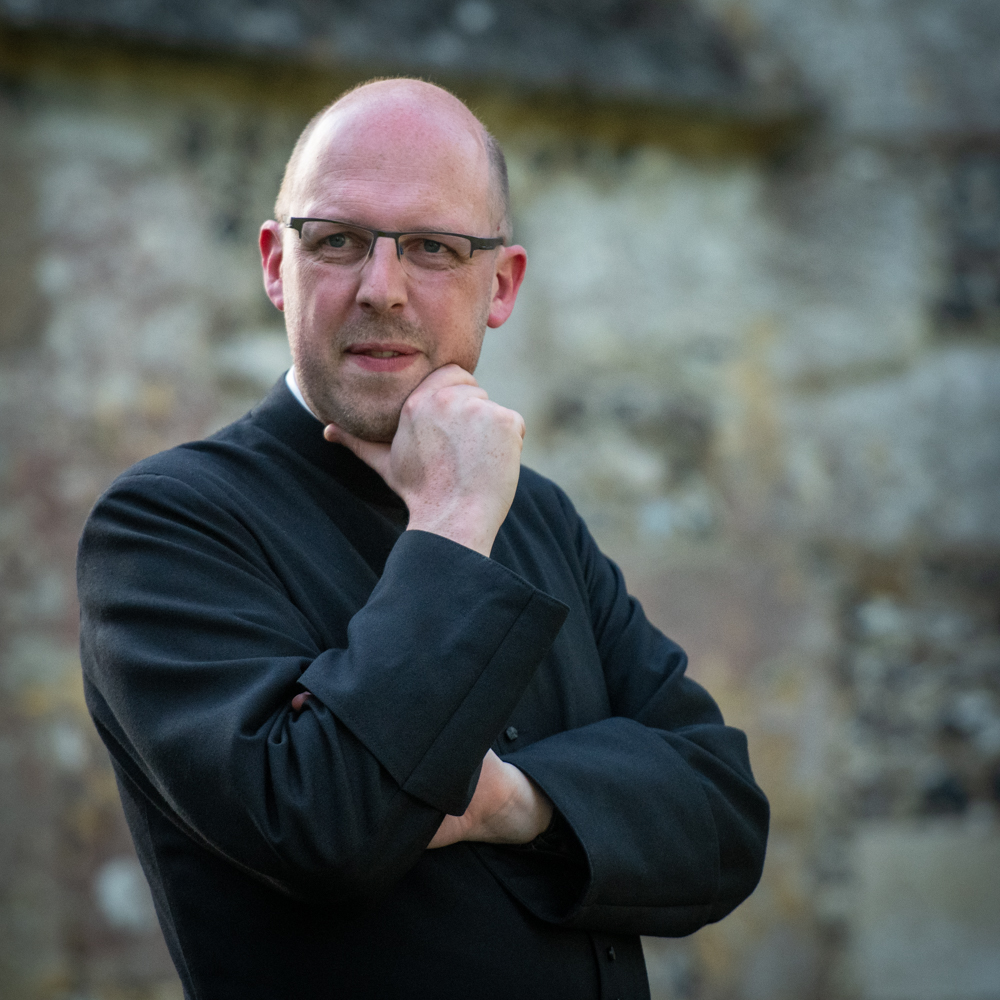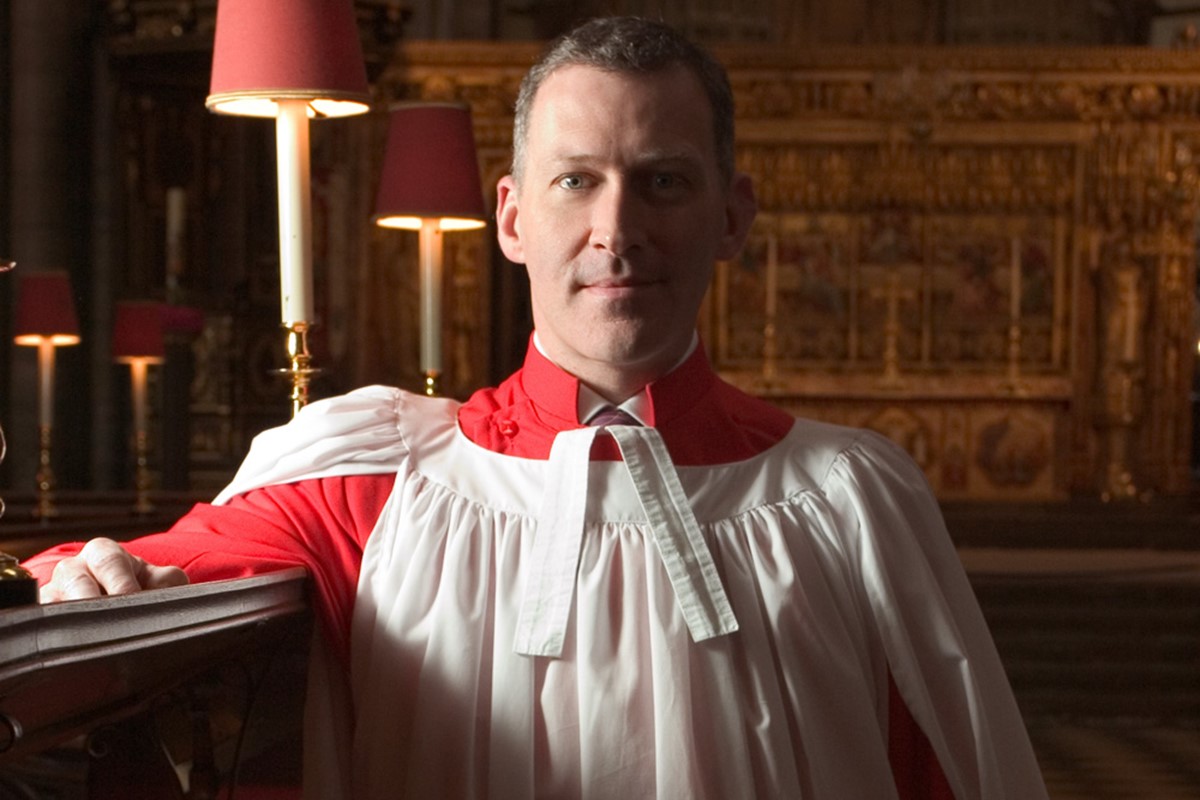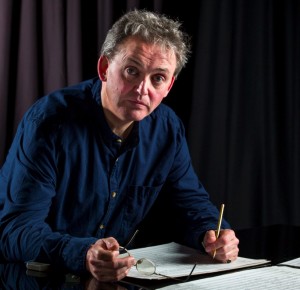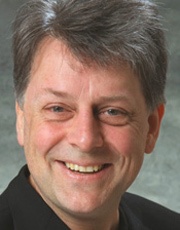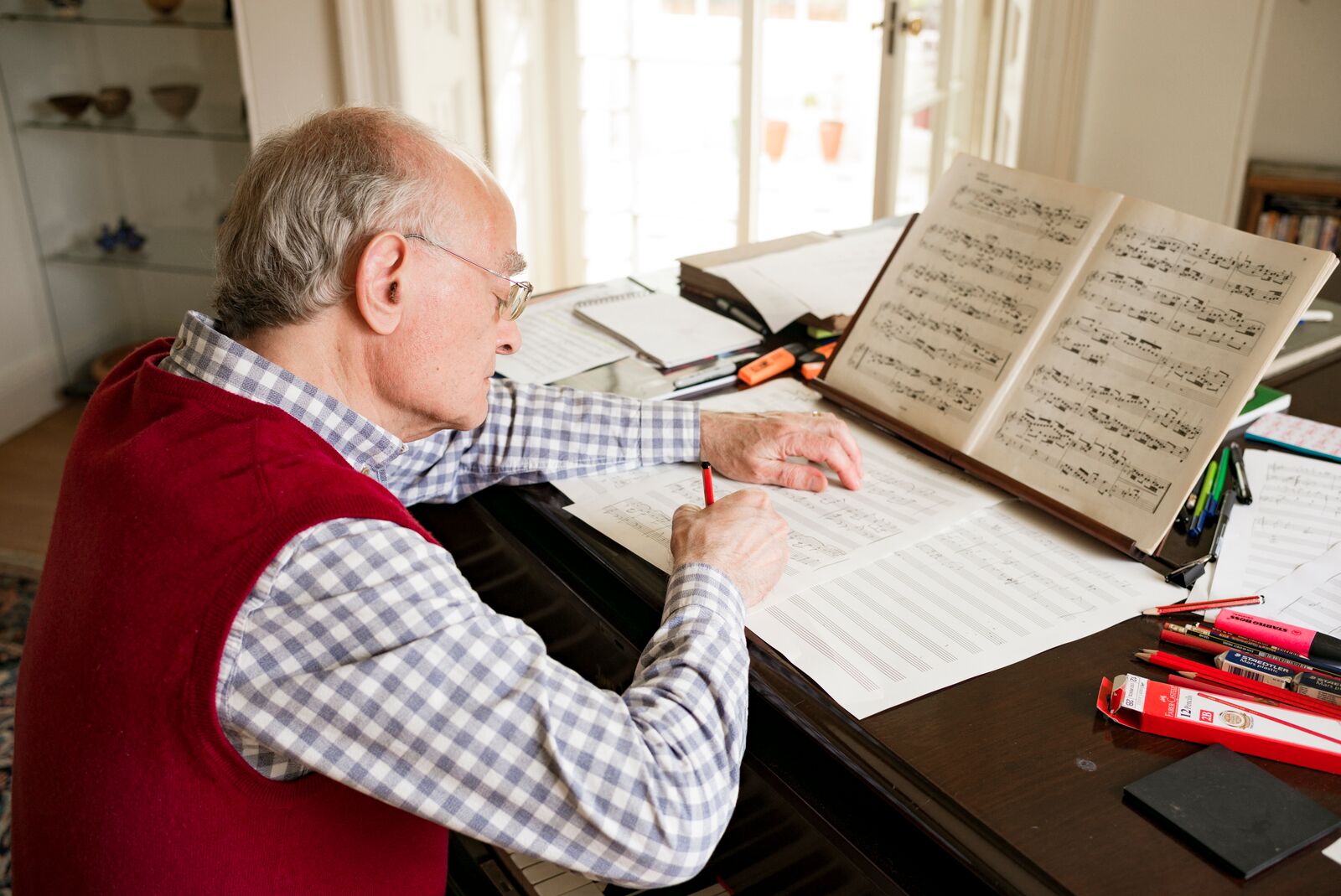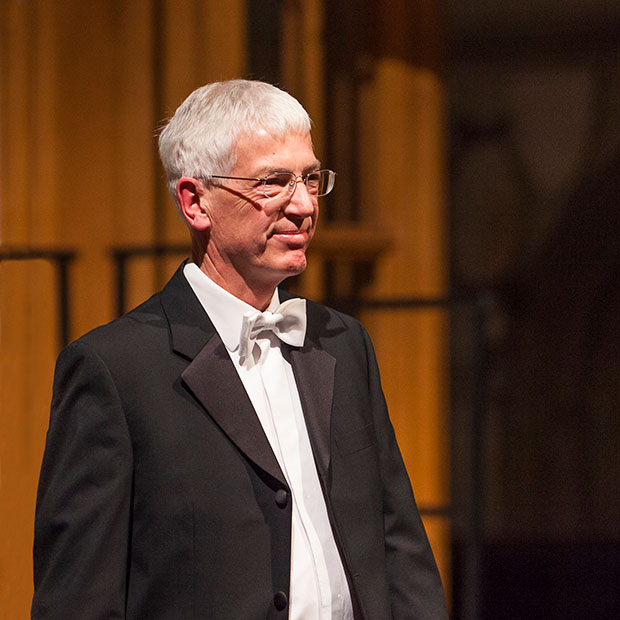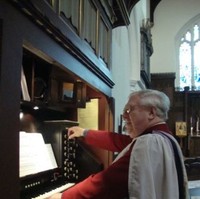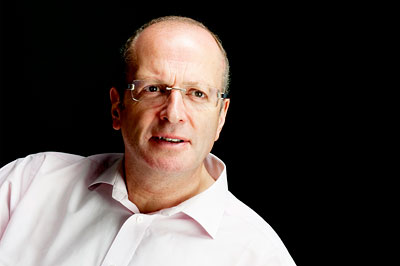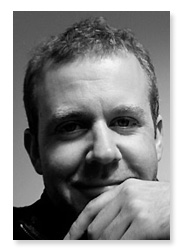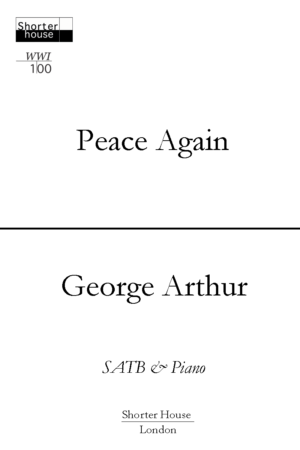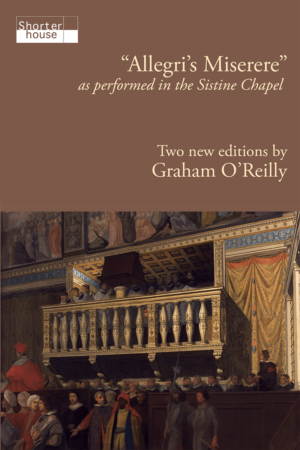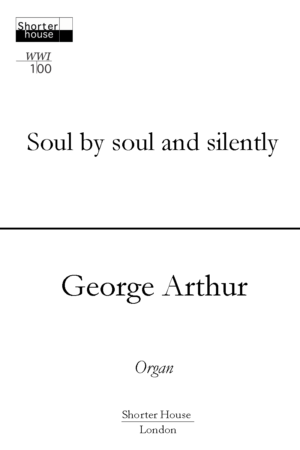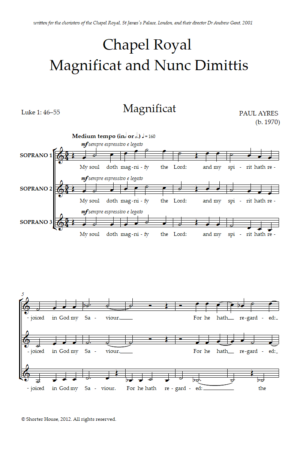Composers
Shorter House is proud to publish contemporary choral music by established and emerging composers, as you can see from the list below.
Simon Lindley is Organist of Leeds Parish Church and of Leeds Town Hall.
At the City's historic and famous Parish Church his duties included the direction of its world-renowned Choir. He is also Music Director of St Peter's Singers, one of England's leading Chamber Choirs, and has served in that capacity since the foundation of the group in 1977.
Other current conductorships include Sheffield Bach Society, Halifax-based Overgate Hospice Choir and Leeds College of Music Community Choral Society. During the coming season (2010–11) Simon is Chief Guest Conductor of Doncaster Choral Society. He is pianist to St Peter's (Leeds Parish Church) Church of England Primary School, Burmantofts.
Senior Lecturer in Music at Leeds Polytechnic from 1976 to 1987, Simon was in 1988 appointed to the new post of Senior Assistant Music Officer for Leeds City Council's [then] Learning and Leisure Department, working on a kaleidoscopic diversity of productions in the office of the award-winning Leeds International Concert Season – notably weekly Town Hall Lunchtime Recitals, programmes for the Saturday symphony and choral concerts and as Artistic Advisor to the Leeds Summer Heritage Festivals from 1989.
Before moving to Yorkshire thirty-five years ago, Simon was organist to several famous London Churches [notably St Anne & St Agnes and St Olave, Hart Street, in the City], Organ Tutor at the Royal School of Church Music's College of St Nicolas – then at Addington Palace, Croydon – and held posts at Westminster and St Albans Cathedrals and as Director of Music to St Albans School.
At St Albans, he was the first full-time assistant to the legendary Dr Peter Hurford OBE.
A notable 1969 début recital at Westminster Cathedral, and his acclaimed live broadcast from the 1975 Proms of the Elgar Sonata at the Royal Albert Hall established his reputation as a player of distinctive style. This reputation has been enhanced by an extensive discography including two best-selling Naxos CDs [French Organ Music from Leeds Parish Church and Handel Concertos with Northern Sinfonia] and an award-winning performance of the fiendish solo part in Khachaturian's Organ Symphony with the BBC Philharmonic on Chandos conducted by Feyodor Gluschenko and recorded live at a concert in Leeds Town Hall.
Also for Chandos he has made a number of critically praised CDs as accompanist to cornet virtuoso Phillip McCann in the series The World's Most Beautiful Melodies. Simon's playing is also to be heard on many recordings by the Orchestra of Opera North - most recently with Paul Daniel in a Walton CD including Belshazzar's Feast and the 1937 and 1953 Coronation Marches, and in Bartók's Duke Bluebeard's Castle under Richard Farnes.
As an orchestral organist, he has worked – and continues to work – with all the leading British orchestras, and very regularly as organist for concerts by Huddersfield Choral Society. He remains one of very few players regularly playing full oratorio organ accompaniments without orchestra. Recent solo work has included the Poulenc concerto with the Orchestra of Opera North and the Royal Liverpool Philharmonic. There have been recent performances of the Saint-Saëns Organ Symphony with the RLPO and, on a UK Tour, with the Warsaw Philharmonic. He undertook a similar tour in 2007 with Maestro Paul Freeman and the Czech Philharmonic.
In the 70s' and 80's, Simon worked as Chorus Master to two of the West Riding's most famous adult choruses – Halifax Choral Society under Dr Donald Hunt OBE and Leeds Philharmonic Society with Meredith Davies. He still conducts Leeds Philharmonic on a regular basis for the annual Lord Mayor's Carol Concerts at Leeds Town Hall and is a life Vice-President of both choirs.
President of the Royal College of Organists from 2000 to 2003 and of the Incorporated Association of Organists from 2003 to 2005, Simon is Secretary of the Church Music Society – a position he has held since 1991.
As a choral conductor, his work is to be heard on many recordings and broadcasts with the famous Choir of Leeds Parish Church whose director he has been since early 1975. Two trail-blazing Amphion CD's of the two monodramas by doyen of British composers and former Minster Organist at York, Dr Francis Jackson OBE - Daniel in Babylon and A Time of Fire [Scenes from Tyndale's Dream] - have attracted widespread critical acclaim; these historic performances, recorded in Leeds Parish Church, feature the composer at the organ, actor-dramatist John Stuart Anderson and St Peter's Singers under Simon Lindley's direction.
Personalia, awards and achievements: Born in London, the son of an Anglican priest and a writer and the grandson of Belgian poet and art historian Professor Emile Cammaerts, Simon was educated at Magdalen College School, Oxford and in London at the Royal College of Music, studying organ, piano and voice. He is an Associate of the Royal College and a Graduate of the Royal Schools of Music [London].
He comes from a musical family. Simon's sister Ruth was for years a leading member of the Choir of the London Oratory. His son Nicolas proved a notable Parish Church Head Chorister and soloist at Leeds and great-grandmother, Marie Brema, colleague and friend of Elgar, sang the role of the angel in the première of Elgar's The Dream of Gerontius at the 1900 Birmingham Festival.
Work in many capacities for the Royal School of Church Music has included directing RSCM courses on four continents. He is a member of the Royal School's Advisory Board and holds the honorary diplomas of ARSCM [1987], and FRSCM – the latter presented in 2002.
In 2003, Simon succeeded the late Dr Lionel Dakers CBE [RSCM Director from 1973 to 1989] as Chairman of the Friends of the Musicians' Chapel at Church of St Sepulchre-without-Newgate in the City of London - the National Musicians' Church. He is also a Churchwarden of St Sepulchre's.
Additionally on the national musical canvas, he is Chairman of the Ecclesiastical Music Trust [the charitable arm of the English Hymnal Company, a Trust founded by Ralph Vaughan Williams], a founder-trustee of the Sir George Thalben-Ball Memorial Trust and the longest-serving trustee of the John Pilling Trust. Simon is also a member of the Royal Society of Musicians and a Liveryman of the Worshipful Company of Musicians.
Dr Lindley is a Director of the English Hymnal Company and worked extensively on New English Praise, the recently published supplement to The New English Hymnal issued by the Canterbury Press in 2006.
Simon is a Fellow of the Royal College of Organists and holds the College's coveted Choirmaster's Diploma [CHM]. He is also a Fellow of Trinity College of Music and a Licentiate of the Royal Academy of Music.
In Autumn of 2001 an honorary doctorate of Leeds Metropolitan University was conferred upon him in recognition of his services to the musical and civic life of his adopted city. He is the recipient of Honorary Fellowships from Leeds College of Music, the Guild of Church Musicians, the Guild of Musicians and Singers and, most recently, the Royal School of Church Music. In Summer 2005 he received the Freedom of the City of London, where he began his career as an organist over forty years ago and in the Spring of 2006 he was the recipient of the coveted Spirit of Leeds award from Leeds Civic Trust.
A number of Simon's small-scale compositions and carol settings for worship services have achieved widespread provenance. A very popular setting of Ave Maria is sung and recorded very widely in and by quires and places where they sing and his carol-arrangements include Now the green blade riseth – used very widely in churches, cathedrals and chapels of all denominations at Eastertide. Katherine Jenkins' acclaimed CD Sacred Arias includes a performance of Simon's Ave Maria.
His interests include writing, printing and typography, cooking, travel - especially rail travel - and local history.
Simon lives at the Moravian Settlement in Fulneck near Pudsey at the confluence of the West Riding rural and industrial heartlands. He is currently Grand Organist to the United Grand Lodge of England and to the Masonic Province of Yorkshire, West Riding.
He has four children and two grandchildren: Nicolas, the eldest son – with two children of his own – lives and works in Florida, USA; Dominic is Senior Economic Policy Advisor to the Consumers' Association. Benedict – a stalwart of LPC Choir Tours – holds at BSc in computer science from Leeds Metropolitan University and works in IT. Rebecca is currently recently returned to Leeds, having recently graduated from the University of Northumbria.
Matthew Martin is Precentor and Director of College Music at Gonville & Caius College, Cambridge. He read Music at Magdalen College, Oxford before studying at the Royal Academy of Music and with Marie-Claire Alain in Paris. From 2015-2020 he was Director of Music at Keble College, Oxford and Artistic Director of the Keble Early Music Festival.
Matthew spent much of his early life immersed in cathedral music and in 2010, after six years as Assistant Master of Music at Westminster Cathedral, he decided to focus more on composition. Since then he has been commissioned to write music for the The Tallis Scholars, the choirs of Westminster Abbey, St Paul’s Cathedral, The Gabrieli Consort and The Sixteen. Matthew won the Liturgical category in the 2013 British Composer Awards, and the first disc of his choral music (Jubilate Deo) was recorded by Daniel Hyde and The Choir of Magdalen College, Oxford (Opus Arte/2014).
More recently, he has written for the Cheltenham Music Festival (Trumpet Sonata) and The Tallis Scholars (Lamentations of Jeremiah). His Rose Magnificat for Paul McCreesh and The Gabrieli Consort won the Choral category in the 2019 BBC Music Magazine Awards. Earlier in 2019, he was asked to write a festival anthem (In the midst of thy Temple) for the choir of Westminster Abbey, marking the 750th anniversary of its refounding, and a test piece for organ (Triptych) for the 2019 St Albans International Organ Competition.
 Winner of four national and two international composition awards, in 1997 Francis received First Prize in the piano solo section of the S.S. Prokofiev Composing Competition in Moscow, for his Toccata (dedicated to his friend, the legendary French-Canadian virtuoso Marc-André Hamelin). In 2004 he was awarded Honorable Mention in the Barlow International Award for Composition (USA), placed 2nd in a worldwide field of 362 professional composers behind his friend and compatriot, Judith Bingham. In 2006 and 2011 he was a nominated finalist in the BASCA Annual Composer Awards, staged in association with the BBC. In August 1999 A Song on the End of the World, his oratorio for soloists, chorus and orchestra, was hailed in The Times as ‘thrilling music, …contemporary and original, …impressive and profoundly affecting’ , and in The Birmingham Post as ‘a stunning première, …apocalyptic and luminous’. In 2006 his further oratorio for tenor soloist, double chorus and organ, The Cloud of Unknowing, was acclaimed by Richard Morrison in The Times: ‘A sincere, intelligent and admirably unsensational meditation on the darkness at the heart of man. …One sometimes writes, hyperbolically, of a performance moving one to tears. But at the end of Francis Pott’s The Cloud of Unknowing, genuine tears were shed’.
Francis’ recent output includes Word, a half-hour meditative sequence for chorus and organ which interrogates the meaning and message of the Gospels in a postmodern age, and which intersperses five poems of R.S.Thomas with verses from St John’s Prologue in the New Revised Standard Version; also a large-scale Mass for eight parts, recorded in 2011 on the Naxos label by its dedicatees, the Oxford-based chamber choir Commotio under their conductor, Matthew Berry. Concert music has included Einzige Tage, a song cycle setting German translations of Russian poems by Pasternak and Akhmatova, and a half-hour Sonata for viola and piano; these two works were released together on CD in December 2014. Recent projects also include two major works for chorus and orchestra, while current activity embraces concertos for violin and for cor anglais and further works for organ and for piano. Francis remains active as a piano soloist, accompanist and chamber partner and maintains a particular research interest in the oeuvre of the émigré Russian composer-pianist, Nikolai Medtner.
Francis Pott is married with two adult children (both following him in musical directions) and lives in a village on the outskirts of Winchester.
Winner of four national and two international composition awards, in 1997 Francis received First Prize in the piano solo section of the S.S. Prokofiev Composing Competition in Moscow, for his Toccata (dedicated to his friend, the legendary French-Canadian virtuoso Marc-André Hamelin). In 2004 he was awarded Honorable Mention in the Barlow International Award for Composition (USA), placed 2nd in a worldwide field of 362 professional composers behind his friend and compatriot, Judith Bingham. In 2006 and 2011 he was a nominated finalist in the BASCA Annual Composer Awards, staged in association with the BBC. In August 1999 A Song on the End of the World, his oratorio for soloists, chorus and orchestra, was hailed in The Times as ‘thrilling music, …contemporary and original, …impressive and profoundly affecting’ , and in The Birmingham Post as ‘a stunning première, …apocalyptic and luminous’. In 2006 his further oratorio for tenor soloist, double chorus and organ, The Cloud of Unknowing, was acclaimed by Richard Morrison in The Times: ‘A sincere, intelligent and admirably unsensational meditation on the darkness at the heart of man. …One sometimes writes, hyperbolically, of a performance moving one to tears. But at the end of Francis Pott’s The Cloud of Unknowing, genuine tears were shed’.
Francis’ recent output includes Word, a half-hour meditative sequence for chorus and organ which interrogates the meaning and message of the Gospels in a postmodern age, and which intersperses five poems of R.S.Thomas with verses from St John’s Prologue in the New Revised Standard Version; also a large-scale Mass for eight parts, recorded in 2011 on the Naxos label by its dedicatees, the Oxford-based chamber choir Commotio under their conductor, Matthew Berry. Concert music has included Einzige Tage, a song cycle setting German translations of Russian poems by Pasternak and Akhmatova, and a half-hour Sonata for viola and piano; these two works were released together on CD in December 2014. Recent projects also include two major works for chorus and orchestra, while current activity embraces concertos for violin and for cor anglais and further works for organ and for piano. Francis remains active as a piano soloist, accompanist and chamber partner and maintains a particular research interest in the oeuvre of the émigré Russian composer-pianist, Nikolai Medtner.
Francis Pott is married with two adult children (both following him in musical directions) and lives in a village on the outskirts of Winchester.
Jonathan Rathbone was a chorister at Coventry Cathedral and later, a choral scholar at Christ’s College Cambridge, where he read mathematics. He gained a second degree at the Royal Academy of Music where he studied composition with John Gardner. Whilst there, he wrote a children’s musical called The Selfish Giant, and the music for a production of Dog Beneath The Skin at the Half Moon Theatre with director Julian Sands. He was signed as a song-writer with Noel Gay Music.
He sang with St Bride’s Choir, Fleet Street and the BBC Singers before joining the Swingle Singers in 1984. He was musical director of the group for eight of the twelve years he sang with them, during which time he created the majority of their arrangements, both a cappella and with orchestra. He has worked with many of the world’s leading musicians including Pierre Boulez, Luciano Berio. John Dankworth, Stephan Grapelli, Beatles producer, George Martin and French pop star, Etienne Daho.
He left the group in 1996 to spend more of his time writing. He has orchestrated for Sir Cliff Richard and Michael Ball and more recently for Katherine Jenkins, Lesley Garrett and Wynne Evans (“Go Compare!”). He still travels all over Europe to vocal courses, to work with various vocal ensembles and to adjudicate choral competitions. In recent years he has lectured and run workshops on close harmony, improvisation, choral conducting, vocal arranging and choral techniques.
He is now an in-house composer with Peters Edition. He conducts three choirs in north London, for whom has written numerous pieces, including Night of Wonder, Swithun’s Watery Tale, a festive Christmas cantata entitled Mr Fezziwig’s Christmas Party and a serious piece Christmas Truce telling of the truce of 1914. Most recently he has written two larger works for choir and piano - Patricius! which tells dramatically, the life story of St Patrick, and A Day at the Fair which tells of all the goings-on at a typical English Fair about 100 years ago.
His largest scale work (about 100 minutes) has just been recorded by the Vasari Singers (who also commissioned it). Under the Shadow of His Wing is a reworking of the Vespers Service
In addition to his choral writing, Jonathan’s string quartet, More Fools than Wise, written for the Fitzwilliam Quartet, has been performed all over the world.
Most recently, he was commissioned by the King of Qatar to re-orchestrate The Crown of India Suite by Elgar for a small ensemble and also for an ensemble of 12 harps!
Having begun his musical education as Head Chorister of his parish church choir in Kent Matthew went on to read Music and English at Lancaster University where he studied singing with Mary Hitch and directed the University Chamber Choir.
While training as a teacher in Canterbury Matthew became director of the Kent Youth Barbershop and his college chamber choir.
Specialising in oratorio and English song, Matthew has performed as a soloist in St John’s Smith Square, St Martin in the Fields and on choral tours of France and Italy. As well as deputising with several London choirs and Canterbury Cathedral Choir he sings with the Vasari Singers, one of Britain’s leading chamber choirs, and has sung solo baritone with them in numerous performances and for several recordings.
Matthew is also a composer and arranger mainly of liturgical choral music. His two sets of Versicles and Responses are published by Shorter House and have been performed by the Vasari Singers in Bath Abbey and Chester Cathedral.
Until August 2017, Matthew was Director of Music at St Dunstan’s College, Lewisham. He has recently been ordained and is Assistant Curate at St John the Evangelist, Ranmoor, in the Diocese of Sheffield.
Visit the Shop
Explore our catalogue of classical music


